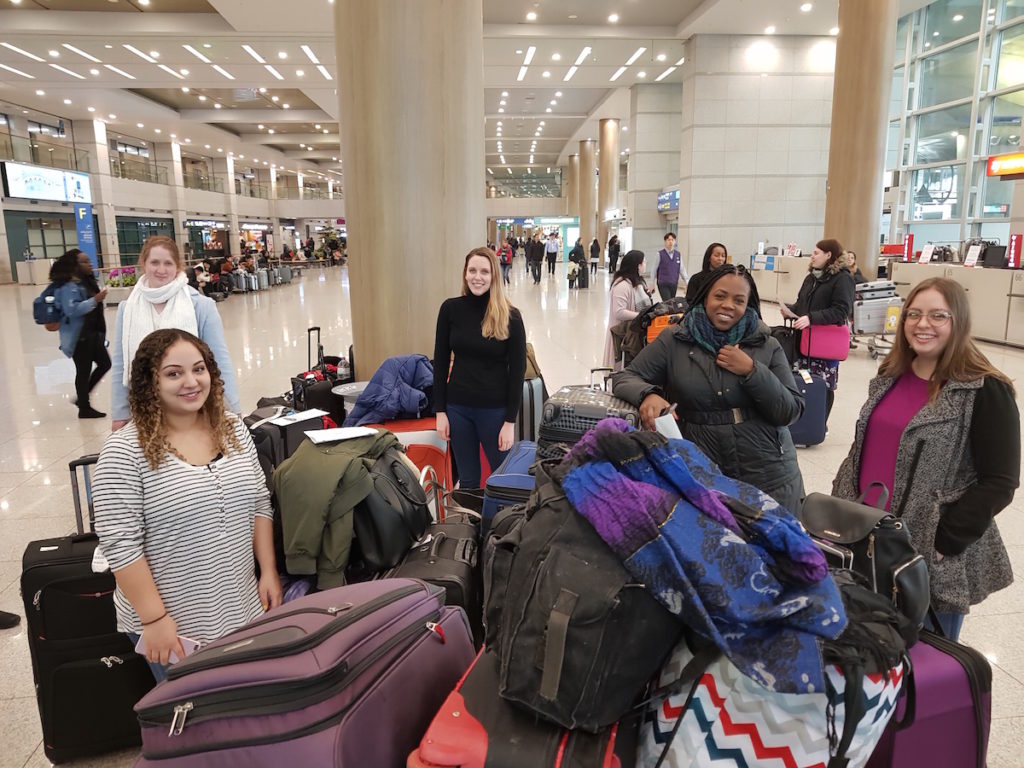Teach English in Korea – FAQS
UPDATED MARCH 2025
Our Teach English in Korea FAQS page attempts to answer as much as possible for teachers who are interested in teaching in South Korea. If you have a question which is not covered below, we have an easy solution for you: Ask us!
Contact us at: info@reachtoteachrecruiting.com.
How much will I be paid in South Korea?
The average rate for first year teachers is 2.1 to 2.7 million won per month.
What qualifications do I need to be a teacher in South Korea?
You must have a university degree and a 120-hour TEFL certificate. Some schools will consider teachers without a TEFL if they have formal teaching experience. For more information about TEFL certificates, please visit our Reach To Teach TEFL page.
Should I get a TEFL qualification? Can you recommend a good course?
Yes! Most of our teach abroad programs are now requiring teachers to have a TEFL certification. In addition, many schools offer higher salaries to TEFL qualified teachers (as long as the course is 120 hours or more). Please refer to our TEFL Directory for examples of courses that are recommended by our schools and by our teachers.
 Where can I apply to teach in South Korea?
Where can I apply to teach in South Korea?
Visit our Job Board here and submit your application today!
Can you tell me more about locations within Korea?
That’s a great question. Learn more about locations in South Korean. We’ve created a helpful guide with useful information for teachers who have a hard time deciding where they want to teach!
I want to live in a specific area of Korea. Can I request a preference?
Yes, absolutely! We have many locations that you can choose from.
Will my school pay for my airfare to South Korea?
Possibly. School packages differ. Schools in Korea will require you to purchase your flight up front. It’s possible you will be reimbursed for your flight at the six month mark or at the end of your contract.
Will my school pay for my housing in South Korea?
Yes, your school will pay for your accommodation. Like any apartment you will still need to provide a down payment (a deposit against damage) and you will be responsible for your utility bills (gas, water, electricity, internet, etc).
Can you send me photos of my apartment?
We are unable to send photos as every apartment is different! However, rest assured you will be quite satisfied with your apartment. Teachers are generally very happy as apartments tend to be new and modern with plenty of amenities. Most apartments include a bed, a desk, a range, a refrigerator and a washing machine.
How much money should I bring with me to Korea?
You should have at least US$2,000 in savings, above and beyond the cost of your plane ticket. This could be a combination of cash or money via ATM. We suggest you bring the majority in cash in case there are any unexpected problems with your ATM card.
If you have an ATM / credit card, call the card company and let them know you will be living in Korea. If you don’t they may think your card has been stolen and cancel it.
How can I pay my student loan and bills in South Korea?
Your school will help you open a Korean bank account when you arrive, and your school will then pay your salary into that account. To send money home you simply transfer the money from your Korean account to another account anywhere in the world. You will need to provide this information:
- Bank name:
- Bank address:
- Account name:
- Account number:
- Swift Code/ International Code:
What types of things should I bring with me to South Korea?
A few thoughts to help you pack:
– Bring a range or clothes for work, play and the seasons. Summer = hot and humid! Winter = snow and ice!
– Most Koreans are quite slim and are generally of smaller frame size than Westerners. If you are of slim to regular build you will be able to buy clothes and shoes in Korea. Larger sized people will have more limited choices.
– If you run out of stuff or forget anything, it can always be sent to you!
What should I know about cell phone service in South Korea?
South Korea has high speed Internet that is accessible and freely available in public places. You can also get a phone and SIM card in Korea if you wish. Some teachers opt for a yearly phone plan while others purchase pre-paid plans. For calls to your home country, there are lots of free apps like Facebook, Line, and Whats App.
Do I need an international driver’s license in South Korea?
Few teachers drive cars in Korea and most Koreans use trains, buses and subways to get around. There is no need to bring an international license.
Should I get vaccinations before I come to Korea?
Please check with your physician.
Another consideration is that you might decide to go on vacation while you are in Asia. Make sure you check the health advisory boards for information on the countries that you are visiting as you’ll want to be vaccinated against some of the diseases that are present in specific regions. You can also get all necessary vaccinations in Korea before you travel on vacation.
What should I know about paying taxes in South Korea?
We are not tax specialists, so please check all information with your tax office. Tax rules can change and they can also be specific to individuals or certain situations. Generally speaking, teachers pay tax in Korea and are exempt from paying tax again when they return to their home country (providing they completed all the required paperwork). Again, please check with your government tax office before coming to Korea. More Information About Taxes for US Citizens Abroad.
When is my vacation time? What happens if I need to go home to attend an event during my year in Korea?
Vacation time is decided by your school and usually set within the school calendar. Vacations are common around August and January.
My family is very concerned about me living in South Korea. Do you have any advice?
It’s important to discuss any worries or concerns that your friends and family may have about your plan to teach in South Korea. Here are a few notes to help you with such a conversation:
Is South Korea a safe place to live?
Extremely low crime rates, a real sense of society and respect for others. The people of this region are not looking for conflict.
There are literally tens of thousands of English teachers in South Korea right now! Check online teacher discussion boards or blogs to see their feelings about living and working in Korea. You won’t see panic or worry. You’ll just see people getting on with their lives and loving their experience in South Korea!
What is the political situation in South Korea?
Things in Korea are not new. It’s been with us for decades. In fact, it’s the same for Taiwan and China. The Western media hypes stories ‘breaking news’ but in reality it’s just the same old politics year after year. Heated but toothless politics seems to be part of everyday life in Asia!
If you ask the people of South Korea if they think conflict is coming they almost always say ‘NO’. They have lived their lives seeing the same political back and forth and it has never led to anything serious; and it’s not likely to change.
When you get to Korea you can register with your Embassy to say you have arrived and are working as a teacher. That way, if there is any reason why you should leave Korea (natural disaster, unexpected changes, etc) your embassy can locate you and plan your safe departure.
We hope you found our Teach English in Korea FAQS page helpful. If you have any questions, please feel free to contact us at the email address listed above.
Learn more about teaching in South Korea with these links:
- Teach English in South Korea
- Korean Private School Hagwon Application Process
- Teaching Locations in South Korea
- South Korea Country Guide
Pin our Teach English in Korea FAQS page so you can refer back to it.






